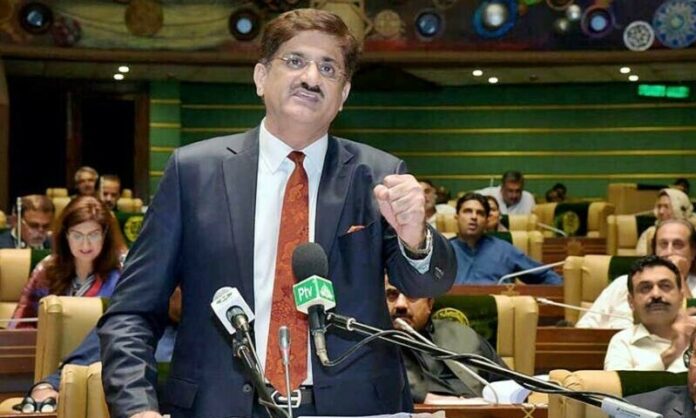KARACHI: Sindh Chief Minister Syed Murad Ali Shah presented a robust Rs3.056 trillion budget for the fiscal year 2024-25 on Friday, underscoring a significant increase in development expenditure and proposing salary hikes of 22 to 30 percent.
Major budget allocations
The budget dedicates Rs959 billion, or 31 percent of the total, to development projects, reflecting a strong focus on enhancing infrastructure and social services. The province anticipates revenue exceeding Rs3 trillion, with 62 percent coming from federal transfers and 22 percent from provincial receipts. Other revenue sources include capital receipts, foreign project assistance, and grants. The expenditure breakdown allocates Rs1.9 trillion (63 percent) for current revenue, Rs184 billion (6 percent) for current capital, and Rs959 billion (31 percent) for development.
Sector-wise allocations
Education receives a substantial allocation of Rs519 billion, with Rs459 billion dedicated to current revenue expenditure. The healthcare sector is allocated Rs334 billion, including Rs302 billion for current expenses. The local government is set to receive Rs329 billion. Agriculture is allocated Rs58 billion, with Rs32 billion earmarked for current expenditure. The energy sector is allotted Rs77 billion, with Rs62 billion for ongoing costs. Irrigation receives Rs94 billion, with Rs36 billion for current expenses. Additionally, Works & Services are allocated Rs86 billion, and Planning & Development receives Rs30 billion.
Emphasis on Social Protection
The budget places a strong emphasis on social protection, with Rs34.9 billion allocated for pro-poor initiatives and Rs116 billion designated for subsidies to alleviate the financial burden on citizens. It also proposes a minimum wage increase to Rs37,000. Key relief measures include salary increases of 22-30 percent for government employees, pension hikes of 15 percent, and Rs25 billion for housing schemes.
Development and Economic Recovery
Several new initiatives aim to foster long-term development and economic recovery. The Hari Card scheme, with an allocation of Rs8 billion, targets 12 million farmers. An Inclusive Enclave in Korangi, with an Rs5 billion allocation, will offer comprehensive facilities. The budget also introduces fiscal decentralization for police stations with an Rs485 million allocation, a Rs5 billion solarization initiative for solar home systems, a Rs5 billion Hub Canal Project for water supply to Karachi, and a Rs5 billion Mazdoor Card program for labor welfare.
Human capital investment
Investing in human capital is a key priority, with Rs190 billion allocated in grants for education and healthcare, including Rs35 billion earmarked for universities and support for major hospitals and medical institutes.
The Sindh budget for 2024-25 demonstrates a comprehensive approach to development, social welfare, and economic recovery, reflecting the government’s commitment to the long-term growth and well-being of its citizens.




